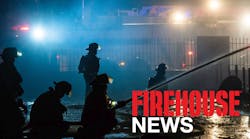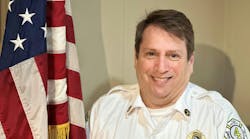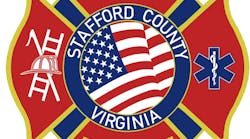In July 2003, at Firehouse Expo in Baltimore and again in February 2004 at Firehouse World in San Diego, Firehouse® offered a learning opportunity that was a new addition to the standard agenda of sessions. The workshop was about politics, and the way that politics impacts fire departments and the fire service specifically. The session was presented by a panel that included me, Hal Bruno of Firehouse®, Bill Webb from the Congressional Fire Services Institute and Steve Austin from the Delaware fire service.
It’s interesting that fire service resources and influence are regulated almost entirely by the decisions that emerge from various political processes, yet little attention has been devoted to exploring and teaching the subject of politics. Harvey Eisner, Jeff Barrington and others at Firehouse® deserve credit for having the insight to acknowledge politics as an educational priority for members of the fire service. This workshop will be offered again at Firehouse Expo in Baltimore in July 2004.
I’m not a political expert, by any stretch of the imagination, but I’ve been fortunate enough to hang around with some people who are, like Hal Bruno, Bill Webb, Steve Austin, Alan Caldwell, Kevin O’Connor, Barry Katzinetz, Steve Edwards, Chris Neal and others. They know that some fire departments and fire service organizations respect the role of politics in their success, while others either don’t understand, don’t participate or participate in ways that are dysfunctional.
Fire department politics is more than supporting or opposing candidates or initiatives. It is a process that has many specific success elements. In this article, I will discuss some of these at the local, state, and national levels – realizing that there is some overlap that applies across the board at all levels.
Local Level
Official fire department leaders who get involved in local political campaigns are asking for trouble. That kind of politics is best left to member associations or unions. However, involvement in the other elements of the political process is critical for fire department leaders.
The political process is more than a campaign; it is ongoing, it occurs every day throughout towns and cities. If the fire department doesn’t play in the game, it can’t expect to consistently win or score with any frequency.
Fire departments should be active community participants that are involved in key decisions that impact the community in general. To be successful, fire departments need the support of community leaders, and that support must be earned. The fire department’s community standing is important to organizational success. To gain community standing, the fire department cannot isolate itself and succeed in an arena that encourages partnerships, coalitions and positive relationships. If fire departments don’t get involved in helping other groups address their problems, why would it surprise us when those groups won’t help us with our problems? Like it or not, that’s politics – and that’s the way the process works.
There are several ways for a fire department leader to assume the role of a community leader:
- Community service and charity events
- Inclusive positive media relations
- Participation in service organizations
- Service on boards and commissions
- Participation in planning processes at the local and regional levels
- Interaction with schools
- Open lines of communications with elected officials
Integrating fire department leaders into settings with other community leaders establishes them as leaders in the eyes of those partners. Bottom line, this has a positive, cumulative effect. It is easier to garner support for the fire department when the fire department supports others. There are so many opportunities for involvement that the fire chief, union president or association president simply can’t do it all. It requires the commitment of all leaders within each of those organizations in order to be effective.
State Level
At the state level of politics, fire service leaders can become trusted advisors and resources to elected officials and their staff members. An important element in being a “trusted advisor” is to always tell those people the truth. Make sure they can depend on you and on what you say.
If leaders decide to pick and support a favorite candidate in a political campaign, they must understand the ramifications of losing. If appropriate, we can contribute to political campaigns, but be careful about backing a sure loser over a sure winner – paybacks can be hell! Never take the support gained politically for granted. It can sometimes be tempting to orchestrate state-level protests against political actions taken at the state level. However, be very careful not to stage a public protest that might embarrass your supporters in the legislature. You might lose those supporters.
When dealing with the elected leadership in the state House of Representatives or Senate, remember that it was their peers who elected them to those positions. Maintaining strong relationships with those “peers” can help you influence those elected “leaders.” This philosophy also holds true with appointed state officials. Building and nurturing relationships with the director of the department of motor vehicles, the budget director, the director of environmental quality, the attorney general, the director of the department of transportation, the superintendent of state police and others can significantly enhance fire service influence at the state level.
Often overlooked are the professional staffs of elected officials at the local, state and national levels. They are the eyes and ears of elected officials. They often control scheduling and access, and they help mold opinions and positions held by the elected officials. Treat professional staff with respect and dignity, or be prepared to pay the price for not doing so. Thank them regularly for their help and their work; you’ll be glad you did.
It is also important to build relationships with lobbyists who work in the political arena. Build relationships with them; help them where possible, and invite some of them to fire department events – then publicly acknowledge their presence to the audience.
Work to build strong relationships with other coalitions. Consider developing a state-level fire service institute similar to the Congressional Fire Services Institute (CFSI) that functions at the national level. Several states have done so and it has increased the collective influence of the fire service in those states. Finally, always be on the lookout for organizations with goals similar to those of the fire service. These alliances can become powerful partnerships.
National Level
Fire service issues at the national level should not be framed as “partisan” issues. They are “American” issues, not Republican, Democratic, independent issues or on the political agenda of any party or affiliation. As fire service leaders, become informed professionals. What you “think” is important; however, you should keep your personal politics and philosophies out of fire service issues.
There are several keys to success in the national political arena:
- Get to know your members of Congress
- Build trust and mutual respect with their staffs
- Learn about the legislative process by understanding the difference between authorization bills, appropriation bills, congressional hearings, the role of conference committees, etc.
Several fire service organizations have excellent, full-time government affairs directors in Washington. They work on our behalf. The CFSI is a tremendous advocate for the fire service in our nation’s capital. The CFSI was established in 1989; it is the information and research center for the Congressional Fire Services Caucus of Congress, which boasts over 300 members. The CFSI’s National Advisory Committee (NAC) is comprised of over 45 fire service affiliate organizations that focus on education, information, communications and advocacy for fire service issues.
Dennis Compton, a Firehouse® contributing editor, is a well-known speaker and the author of several books including the When In Doubt, Lead! series, Mental Aspects of Performance For Firefighters And Fire Officers, as well as many other articles and publications. He is also the co-editor of the current edition of the ICMA’s textbook Managing Fire and Rescue Services. He serves as a national advocate and executive advisor for fire service and emergency management issues and organizations. Compton served as the fire chief in Mesa, AZ, for five years and as assistant fire chief in the Phoenix Fire Department, where he served for 27 years. He is past chair of the executive board of the International Fire Service Training Association (IFSTA), past chair of the Congressional Fire Services Institute’s National Advisory Committee, and serves on the board of directors for the Home Safety Council (HSC).




